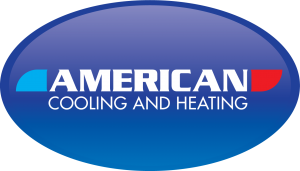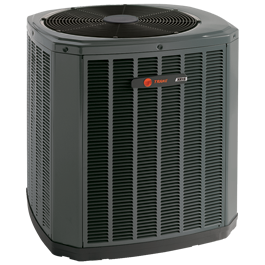Heat Pump Prices – Who Needs a Premium Heat Pump For Their Phoenix AC Installation Project?
Heat Pump Prices – A Difficult Buyer Decision
Like all products, the scale for setting heat pump prices keep changing. So many options affect the final figures. And setting a dead rate for today may be totally out of line for tomorrow. With the availability of so different classes for heat pump performance, homeowners may have trouble dividing the line between AC quality and AC pricing. Sales hype can easily conceal the savings associated with value-added Phoenix AC installation services. If not careful, the buyer ends up with an incorrectly installed quality heat pump that performs below the standards of an entry-level air conditioning system.
Homeowners and even Phoenix business owners can get caught up in the press for premium heat pump installation services versus the value of jumping to the top of the central air conditioning product line.  Yet choosing a lower product efficiency class is not always a bad idea. Buyers must always consider the long-term purposes associated with a new AC installation project.
Yet choosing a lower product efficiency class is not always a bad idea. Buyers must always consider the long-term purposes associated with a new AC installation project.
For example: Unless dealing in a very high profile residential area, most house flippers will install lower end heating and cooling systems. This may not always mean “cheap” but it can mean fewer bells and whistles. Likewise, rental units are typically equipped with lower class heat pumps. And so it is also for homeowners. If you are planning for a near-future housing change – perhaps a shift from Mesa to Scottsdale, why pay top dollar for a Mesa AC installation project only to encounter the same need five years later at your new Scottsdale home.
The following heat pump price tips along with the associated unit quality classes will help you narrow the playing field. Perhaps you need a premium heat pump for your Phoenix AC installation project or maybe a moderate efficiency system will do just as well.
AC and Heat Pump Price Comparisons
As article content ages, price comparisons change. For me to list the ratings and prices of any particular air conditioning system, including air source and/or ducted units, would require that I know the exact prices in your precise time period. Thus the unit comparisons listed below are top down ranging from most efficient to least efficient. The two primary factors of efficiency include system Seasonal Energy Efficiency Ratio (SEER) and Heating Seasonal Performance Factor (HSPF). However, not every Phoenix AC installation company charges the labor rates – neither do they provide the same quality of installation expertise, customer support or service reliability.
The following details focus on Trane as a token of every reliable manufacturer of quality AC or heat pump products. But I really cannot state current national labor averages, not can I set exact or average product prices. So we are going to compare heat pump efficiency rather than heat pump sales and heat pump installation prices. If you need an exact and current price on a new system, contact your local ACH service center.
Ultra Efficiency Trane Heat Pumps
Ultra efficient Trane systems currently ship in three configurations: 1) XL20i, 2) XL16i and 3) XL15i. These compare to the premium products of other manufacturers such as the Amana, Carrier and Rheem. However, the Carrier Infinity line pushes a higher SEER rating than the upper level Tranes, including a plus four on HSPF ratings. Therefore Carrier Infinity pricing can exceed the Trane Ultra Efficiency pricing by as much as sixty percent.
Th XL20i rates 19 SEER and 9 or less on HSPF. The average pricing for these units unit with thermostat and furnace, including system installation depends on the tonnage of the system and the layout of your home or business. For example: contractor’s wholesale cost for a 2-ton will typically come in cheaper than the cost of a 5-ton unit. The average average cost for Phoenix AC installation not including any need for new or modified ductwork will include a margin for profit as well as the current cost of labor. However the installation costs of larger units will increase proportionally to the need for additional work. Expect the Trane XL16i, rated at 18 SEER with a 9 or less HSPF to price out more expensive than the Trane XL15i, which rates out at 16 SEER and sports a standard HSPF that can reach as high as 9. But also realize SEER rating often directly influences heat pump prices.
High Efficiency Heat Pumps Pricing Based On Trane Systems
 Trane high efficiency heat pumps ship in two models: 1) XR15 and 2) XR13. These system fall in line with Carrier’s Performance and Comfort Series. However, the maximum SEER and HSPF of the Performance and Comfort Series are slightly higher than the Trane High Efficiency line. Likewise, the cost of product plus the cost of Phoenix heat pump installation for both Carrier Performance systems and Carrier Comfort systems is a nearer match to pricing of Trane’s Ultra Efficiency systems rather than the Trane High Efficiency system. The Comfort line typically prices out less than the Performance line.
Trane high efficiency heat pumps ship in two models: 1) XR15 and 2) XR13. These system fall in line with Carrier’s Performance and Comfort Series. However, the maximum SEER and HSPF of the Performance and Comfort Series are slightly higher than the Trane High Efficiency line. Likewise, the cost of product plus the cost of Phoenix heat pump installation for both Carrier Performance systems and Carrier Comfort systems is a nearer match to pricing of Trane’s Ultra Efficiency systems rather than the Trane High Efficiency system. The Comfort line typically prices out less than the Performance line.
Back to a focus on Trane High Efficiency units:
- Trane XR15 rates at 6.5 SEER. HSPF comes in as high as 9. Unit costs plus installation charges typically exceed the costs of the XR13. Likewise, a 4-ton unit with air handler typically exceeds the price of a 2-ton unit w/out air handler.
- Trane XR13 carries a maximum 8.5 HSPF and a SEER rating of 14. Being identified as the lower end of the XR series, the Trane XR13 typically prices our below the cost of the XR15. However, the cost of heat pump installation may remain the same no matter which unit you chose.
Trane Moderate Efficiency Heat Pumps
Again, there is a distinctive price difference between Trane’s moderate efficiency systems and Carrier’s low-end systems. This is partly due to Carrier’s low-end units supporting a higher SEER rating (16 max) and HSPF rating (9 max). The moderate efficiency Trane system carries a max SEER of 15 and a max HSPF of 8.5. Trane offers twon low-end system configurations:
- Trane XB14 runs a max of 15 SEER and 8.5 HSPF
- Trane XB13 comes in at 14.5 SEER and 8.5 HSPC.
Closing Notes on Heat Pump Pricing
Heat pump and air conditioning prices vary by manufacturer, unit size, functional extras and the cost of quality Phoenix AC installation. Before closing any deal, complete the following three checkpoints:
- Get multiple estimates from local contractors
- Make a balanced comparison, including differences in SEER ratings, HSPF ratings, product performance extras and the skill and reputation of your installer
- Use your ears and eyes to notice the little things that distinguish an experienced heat pump professional from a sales rep.
Finally, make sure you buy according to your current needs and your long-term future goals.